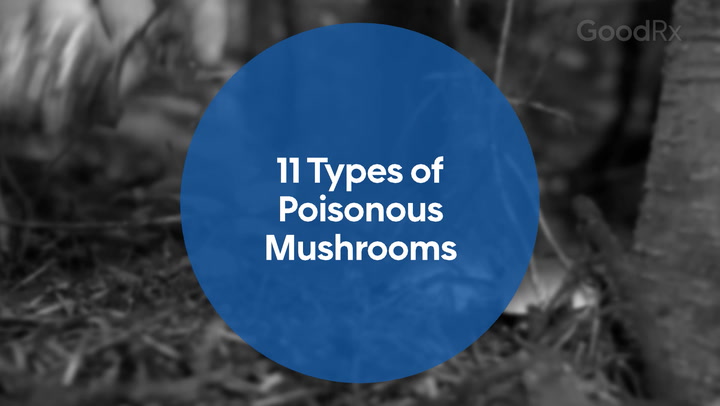
What Does It Mean If You Have Elevated Liver Enzymes?
Key takeaways:
Elevated liver enzyme levels can be a sign of serious liver disease. But they can also occur with mild, temporary illnesses.
Symptoms of liver disease may not be present until later stages of severe disease. So sometimes, liver enzyme tests are the first sign of potential liver damage.
Further testing is often required to determine the cause of elevated liver enzymes.

Annual visits to your healthcare provider are often capped off with an order for routine blood tests. A part of those tests includes testing liver enzyme levels. And many times, those values can be elevated.
In fact, up to one in three people tested will have abnormal liver enzymes. If your liver tests are abnormal, you may wonder: Do I have a serious liver problem? What happens next?
Learn more about the basics of liver enzymes and what the numbers mean for you.
Save over 40% on Qsymia with GoodRx
Discover the once daily Qsymia for weight management. Qsymia is for adults and children 12-17 in combination with a healthy diet and regular exercise.

What are liver enzymes?
An enzyme is a special protein in the body. Liver enzymes work together to help the liver perform its functions, including:
Metabolizing medications and nutrients
Making bile, a substance that travels into the intestine to assist in digestion
Recycling components of blood
Maintaining blood sugar
Producing cholesterol
Creating and regulating some hormones
Blood tests will measure several different types of liver enzymes. But some of these enzymes also exist in other tissues. When you look at your blood work, you'll see:
ALT (alanine transaminase)
AST (aspartate aminotransferase)
ALP (alkaline phosphatase)
GGT (gamma-glutamyl transferase)
What is the importance of liver enzymes?
Liver enzymes are important because they can show if there is any tissue damage or inflammation in the liver. So when they are elevated, this can be a sign of liver disease. It can also be a sign of something else going on the body that is affecting the liver.
This means that your provider may order them if you are having any symptoms of a liver problem. But they can be an easy way to check and make sure everything in the body is running smoothly.
How are liver enzymes tested?
Liver enzymes are tested through the blood. They can be tested on their own, if there is a specific concern about your liver. But they are usually part of a broader check of your electrolyte panel (also called a metabolic panel).
Read more like this
Explore these related articles, suggested for readers like you.
What causes elevated liver enzymes?
Elevated liver enzymes are generally a sign of a problem with the liver. But it’s important to know there are also non-liver causes. For example, the ALT enzyme may increase after extreme physical exertion. Heart failure can also lead to congestion in the liver, elevating enzyme levels. And several liver enzymes may increase from increased body weight.
But elevated liver enzyme levels usually show one of three types of problems with the liver:
Damage or injury to liver cells
Blockage of the bile flow from the liver to the intestine
Impaired function of the liver
Some of the most common causes of elevated liver enzymes include:
Over-the-counter or prescribed medications (Tylenol or statins for cholesterol)
Recreational drugs or toxin ingestion
Heavy or frequent alcohol use
Viral hepatitis, or other viral infections that inflame the liver
Autoimmune hepatitis
Hemochromatosis (genetic disorder of iron-overload)
Hemolysis (excessive breakdown of red blood cells)
Blockage of a bile duct, usually from a gallstone
Liver cirrhosis or liver failure
Liver cancer
The pattern of results — which liver enzymes rise and how high they are — may give a clue to the cause of the problem. For example, elevated AST and ALT point to something injuring the liver cells. And abnormal GGT and Alkaline phosphatase may mean your bile duct system is blocked.
Even when a pattern exists, the cause may not be clear. Genetic, dietary, or infectious causes can all point to liver enzyme elevation. When there are many possible explanations, further testing is usually needed. This may include an ultrasound or MRI of the liver, more blood tests, or in some cases, a liver biopsy.
How do you know if elevated liver enzymes are serious?
Many people with elevated liver enzymes have no symptoms at all. Symptoms may not come on until later in liver disease. Symptoms suggesting a problem with the liver include:
Stomach or abdominal pain
Abdominal fullness from enlargement of the liver
Bloating from ascites (fluid in the abdomen)
Yellowing of the skin or eyes (jaundice)
Fever or chills
Vomiting or diarrhea
Itchy skin
Clay-colored stools
Fatigue
If you have had elevated liver enzymes and have any of these symptoms, talk to your provider as soon as possible. They can work with you to figure out what is going on.
The bottom line
Liver enzymes can be abnormal on blood tests for lots of different reasons. Some are serious, and some are not. But it’s important to address any abnormalities with your provider. Many symptoms of liver disease do not develop until the later stages. So elevated liver enzymes may be the first signal that something is not right.
Why trust our experts?


References
Ballotin, V. R., et al. (2021). Herb-induced liver injury: Systematic review and meta-analysis. World Journal of Clinical Cases.
Lala, V., et al. (2022). Liver function tests. StatPearls.
Moriles, K. E., et al. (2022). Alanine amino transferase. StatPearls.





























